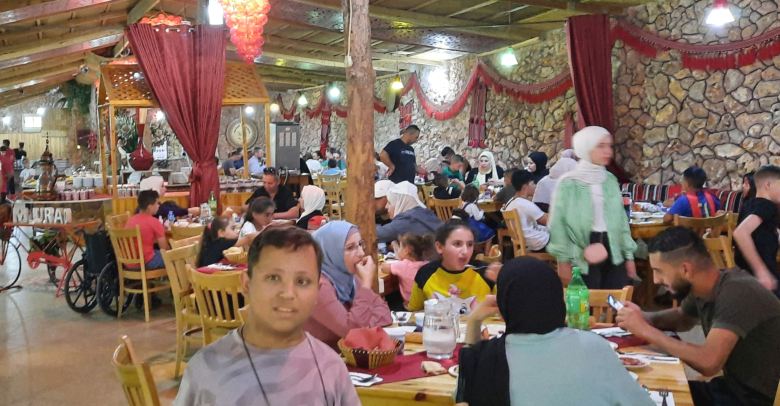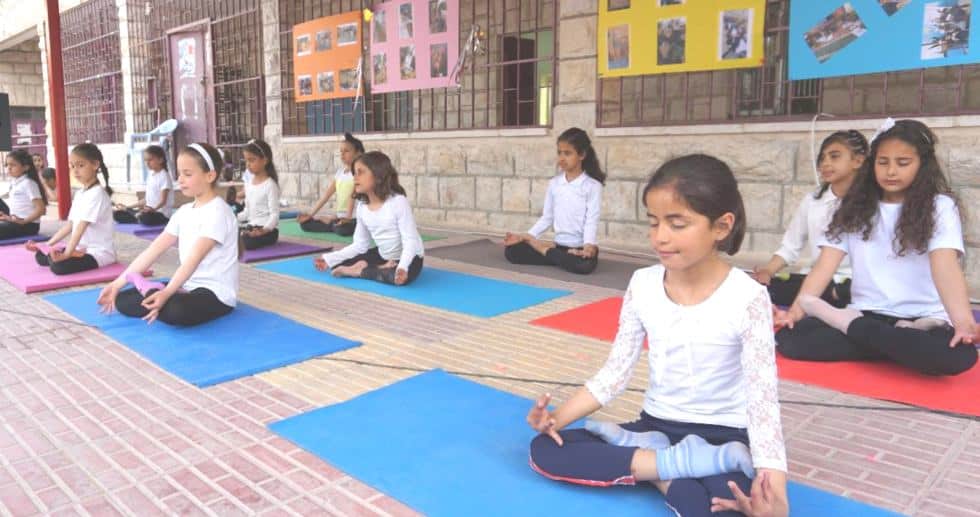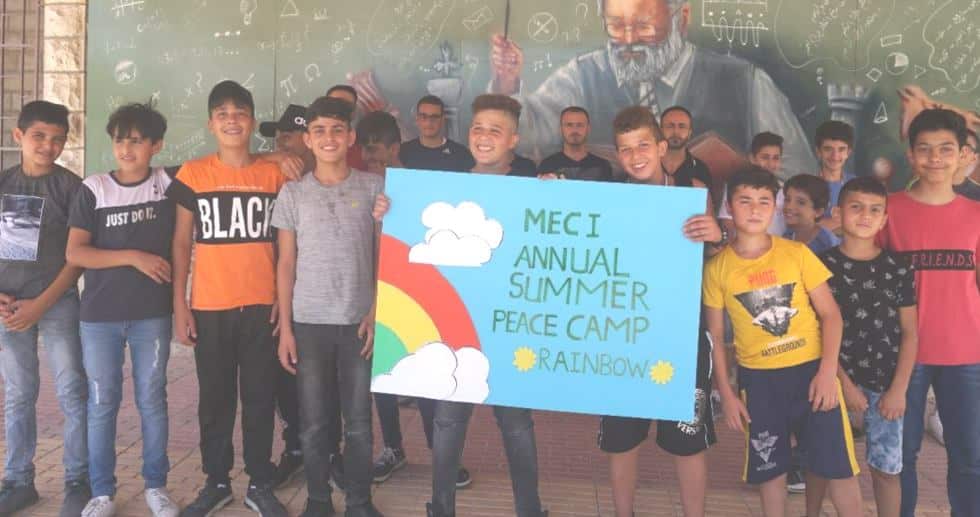WELCOMING CHRISTOPHER HERBERT
Our new Honorary Patron
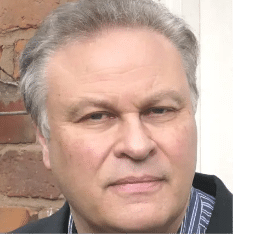
“20 years of rebuilding lives”
From Richard Martin, President and Founder.
Early 2000, the Rt Revd Christopher Herbert invited my wife and I to lunch, at the House of Lords. He was then Bishop of St Albans, and Chairman of the Council for Christians and Jews. He introduced us to two peace activists – one Israeli, the other Palestinian.
Both had tragically lost a child in the First Intifada. But through huge personal strength, they had both sought the path of peace.
As we were leaving the activists called out to us, “Help the children, the forgotten victims of the conflict”. Three years later in 2003, I started Children of Peace.
In the twentieth year of Children of Peace, the Board of Trustees and I wish to acknowledge Christopher Herbert’s role. We want to honour and thank him for inspiring the course of events that led to the founding of Children of Peace. With pleasure, we welcome Christopher as our new Honorary Patron.
Richard Martin FRSA.
NEWS – JUNE 2023
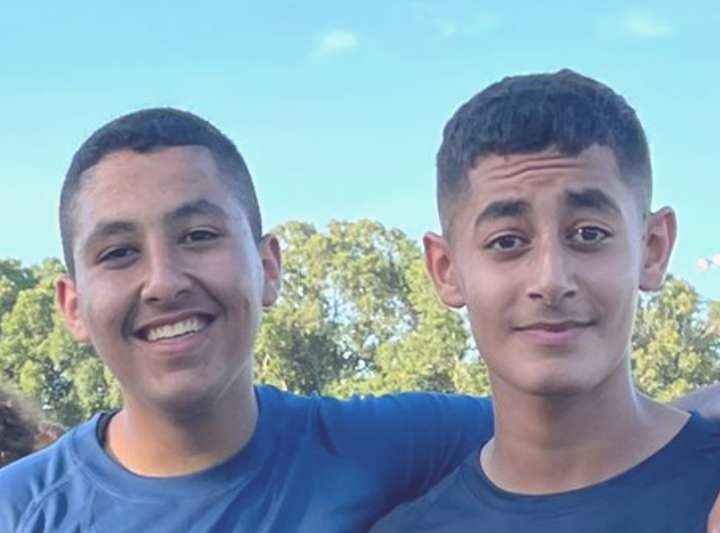
The 2023 Grants
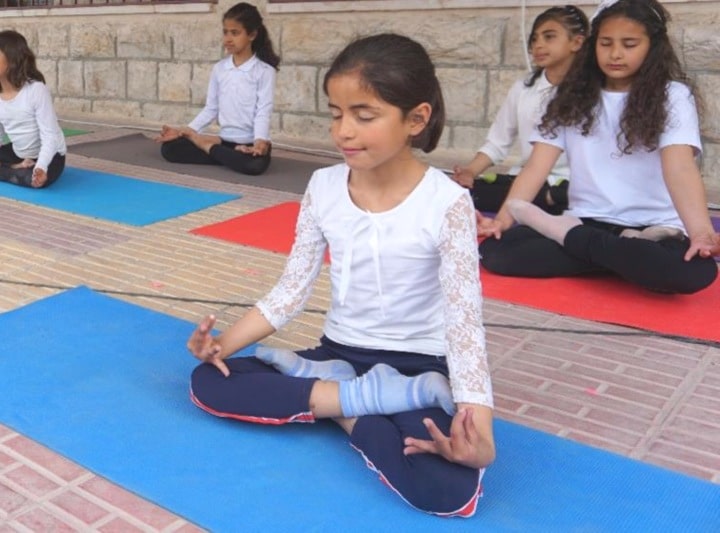
Children's Institute joins us
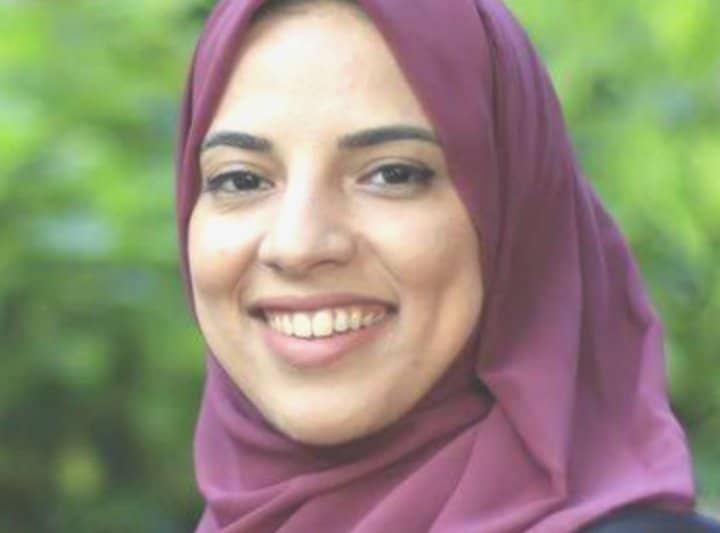
Dalia's Gaza Letter
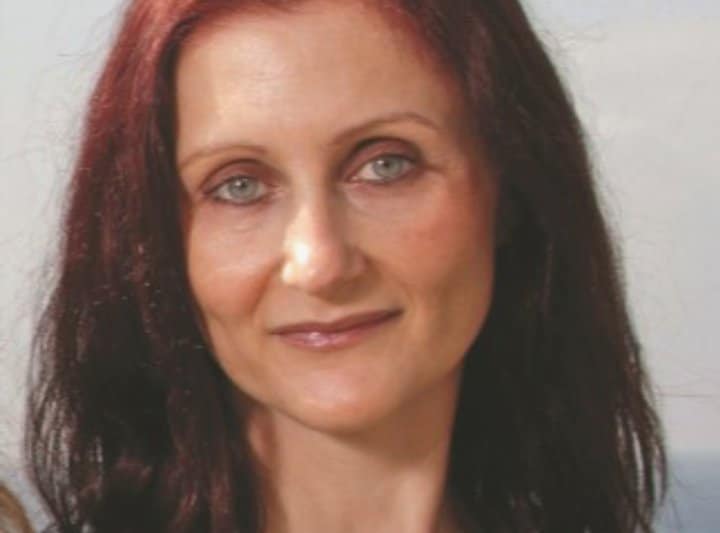
Voices from Israel
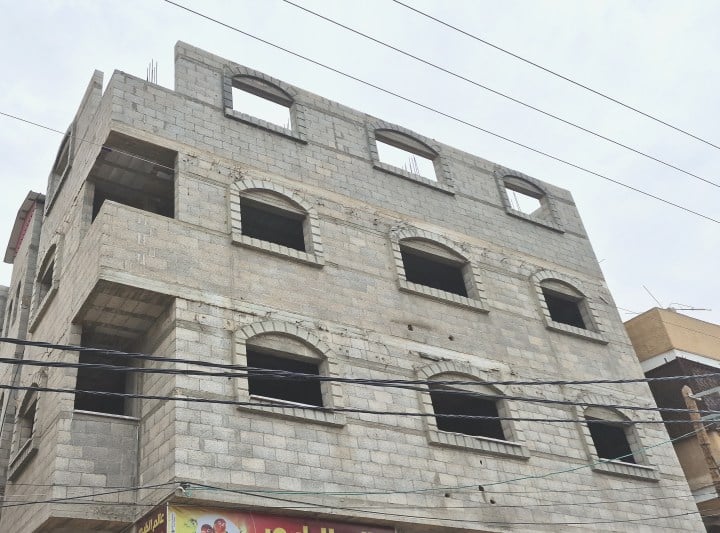
A New School in Gaza
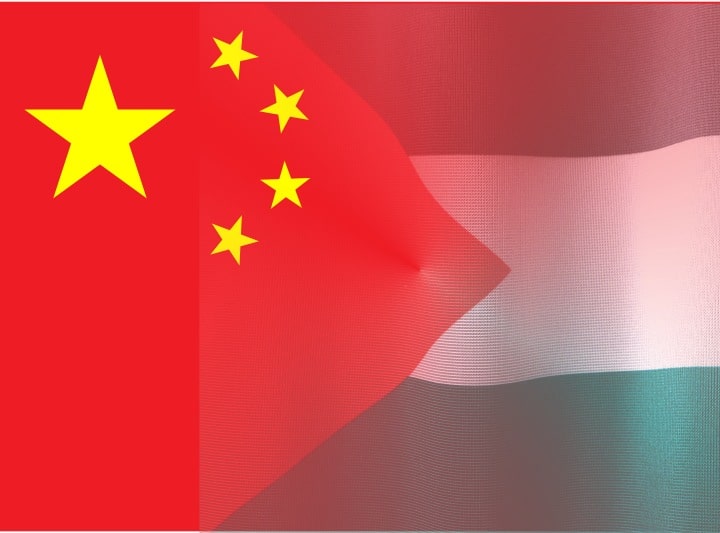
Footnotes
THE CHILDREN OF PEACE GRANTS
The Board of Trustees is pleased to announce the following recipients of our 2023 grants.
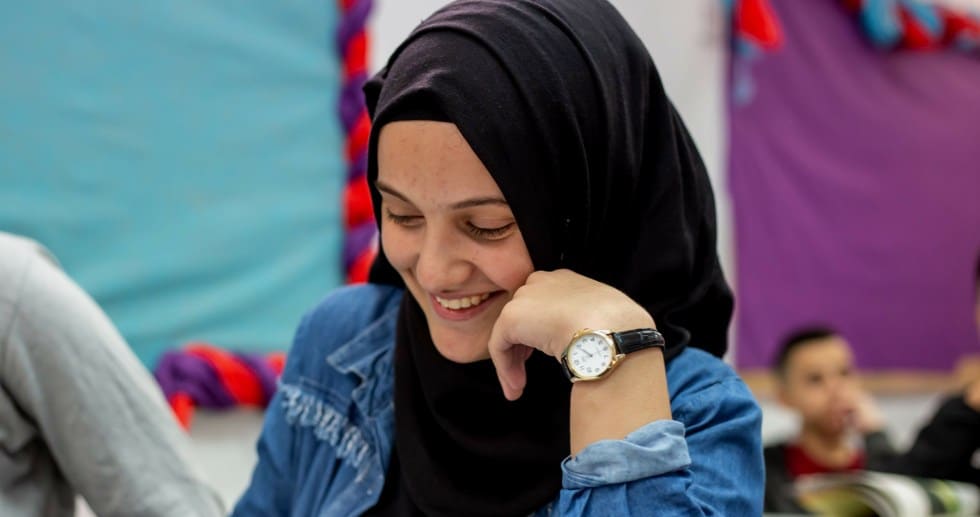
DESERT STARS
A grant in support of sports team-building programmes between Bedouin and Jewish Teens in the Negev.
Here Menucha Saitowitz discusses the important community reach of Desert Stars…
Desert Stars was founded in 2013 and is building a generation of values-driven Bedouin leaders equipped with the skills to promote economic growth, social development, and coexistence across the Negev. Together they will be able to improve things for the Bedouin community and the Negev region as a whole.
We operate…
- A unique Leadership High School.
- Gap year leadership programs for both men and women.
- An extensive alumni program.
- And a service-based youth movement.
ABOUT THE BEDOUIN COMMUNITY
Formerly nomadic shepherds, Bedouins in the Negev are in a generations’ long transition to modernity. 80% of Bedouin children live below the poverty line, 21% drop out of high school, and a mere 8% attain a college degree. Over 300,000 Bedouin live throughout the Negev in recognized and unrecognized villages, many without infrastructure such as roads or the electric grid.
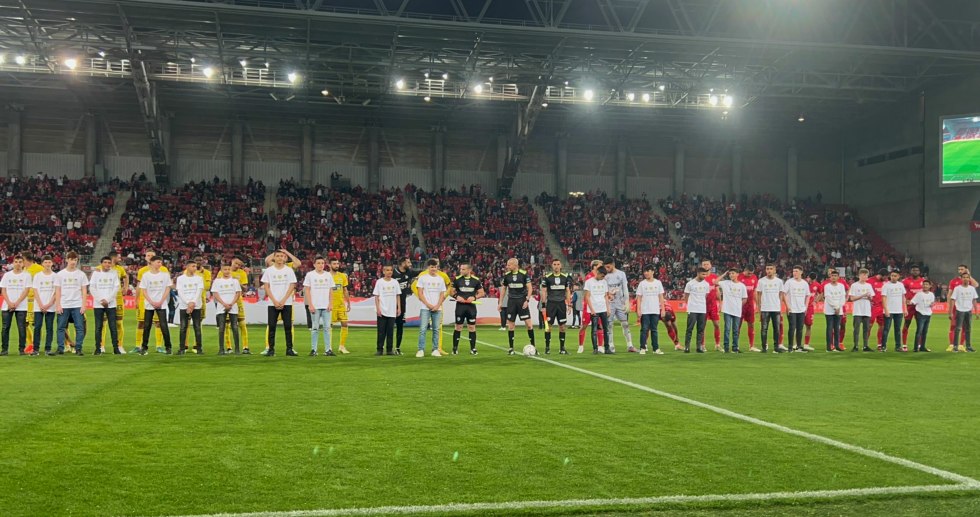
Many of the students at our High School will be the first in their families, or even villages, to attend university. In addition to high quality academics, we offer an extracurricular empowerment center which students attend each day after school. Activities range from robotics and drones to tennis club and a national bike riding group. We firmly believe in the power of sports to teach our students important life skills such as believing in oneself, working as part of a team, working towards a goal, and developing a sense of responsibility. All sports programs have shared society aspects with ongoing training with Jewish peers in nearby Mevuot HaNegev high school.
CYCLING
Our team trains for two hours a week with Mevuot haNegev. The groups compete together in national competitions and have formed strong friendships. Every six weeks they meet on Fridays for a day long ride, and once per year there is an overnight trip.
ULTIMATE FRISBEE
Our team practises for two hours a week and offers opportunities for our students to develop their ability to work as a team. Frisbee is a very social sport and requires paying attention to one’s surroundings and communicating with your teammates.
SURFING
Our High School also operates Israel’s only Bedouin surf club! Each week, 25 students spend four hours each Friday at Bat Yam beach learning to surf. Surfing is about as far from Bedouin life as our students could have imagined, teaching them that no goal is impossible. Surfing involves lots of falling – and learning to get back up! It encourages resilience and overcoming challenges.
TENNIS
Finally, our tennis club is a new joint venture with a Jewish team in Lahav. All students in 9th and 10th grade participate (120 students), learning a new skill that requires training, precision. Most of our students are the first in their families to ever play tennis, and they report feeling empowered and excited by the competitions. There are full-day events every six weeks, including large competitions.
We are incredibly thankful to Children of Peace for supporting Jewish and Bedouin children building relationships through sports.
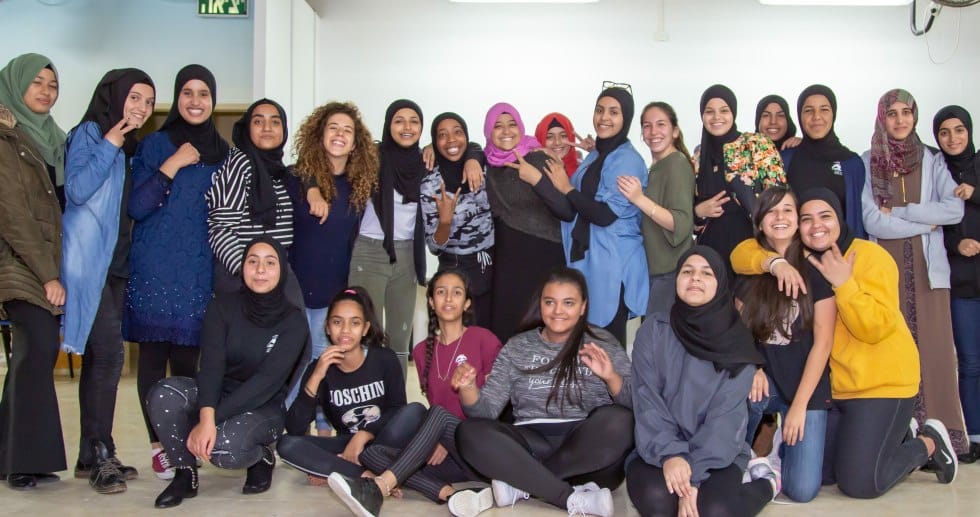
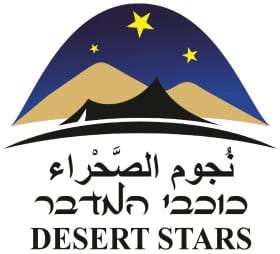

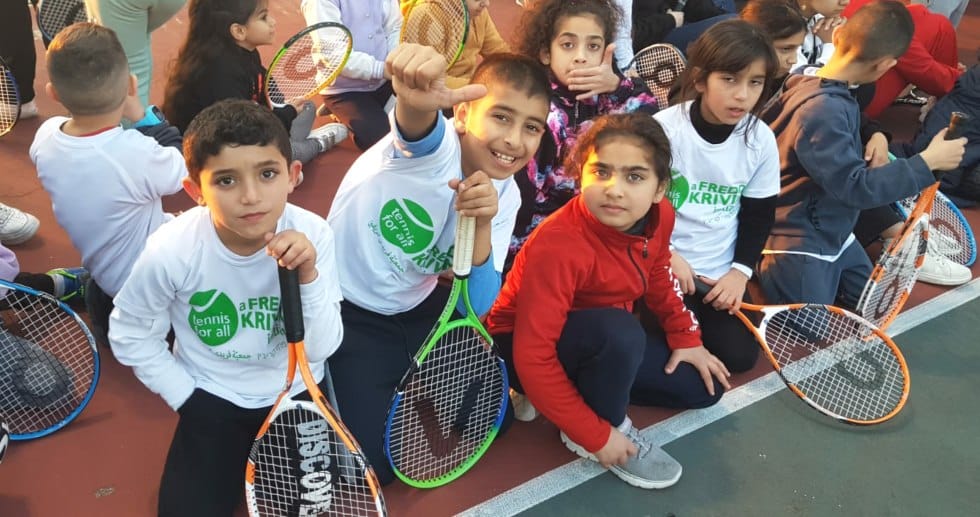
FREDDIE KRIVINE INITIATIVE
For a second successive year, Children of Peace is supporting the valuable work of this important NGO, bringing together Arab and Jewish youth in Israel through the spirit of tennis.
Jane Krivine CEO, and daughter of the founder Freddie Krivine, outlines the significance of their work…
Although the Arab villages in our programme are situated between two major Israeli cities, Tel Aviv and Haifa, and have spectacular views over the Mediterranean, they are part of a large disadvantaged minority in Israel, and find themselves excluded in many ways. Among the problems confronting many if not most of Israel’s Arab communities are unemployment, a weak education system, high crime rates and discrimination.
Sadly, political tensions, the ongoing conflict and flares of aggression from both Arab and Jewish youth in the immediate region, are part and parcel of daily life. The Freddie Krivine Initiative provides a haven of safety and stability for Arab children aged 6 to 16, and its popularity with parents grows and grows.
While he was President of the Israel Tennis Association Freddie Krivine (1920 – 2005), was determined to help in any way he could. He saw a route through tennis, and used his connections and experience to introduce tennis to the children of Jisr az Zarka and other Arab villages, and through tennis to introduce Jewish and Arab children to each other.
The largest village – with which the Freddie Krivine Initiative has been associated for over twenty years – is Jisr az Zarka, known to be among the poorest and most disadvantaged. With barely 25% completing high school and a disturbingly high level of gang warfare, for many children the future looks hopeless. Jewish and Arab children are separately schooled, and a disturbingly large proportion of Arab teens from the homogenous villages barely speak or understand Hebrew, and will enter the workforce at only the most menial level.
This is where FKI brings hope.
The lives of more than 150 Arab youngsters each year take a new direction with twice-weekly tennis training. They meet Jewish children on the courts and at the annual summer schools where they hear and speak Hebrew, along with homework and conversation with native English speaking and native Hebrew speaking volunteers. Jewish children who have never met an Arab child find through the FKI, a common language and a new perspective, at regular meets on the tennis courts. Minds are broadened when Jewish and Arab families meet each other for the first time at mixed religious celebrations and festivals. All children on the FKI tennis programmes are expected to complete High School.
If there is any doubt to the success of the twenty plus year programme, readers are welcome to meet the doctors, nurses, teachers, physiotherapists and business owners who all know their forehand from their volleys, their backhand from their smash because they used to learn tennis on the FKI programme, thanks to Freddie’s vision.
The charity is in his memory.
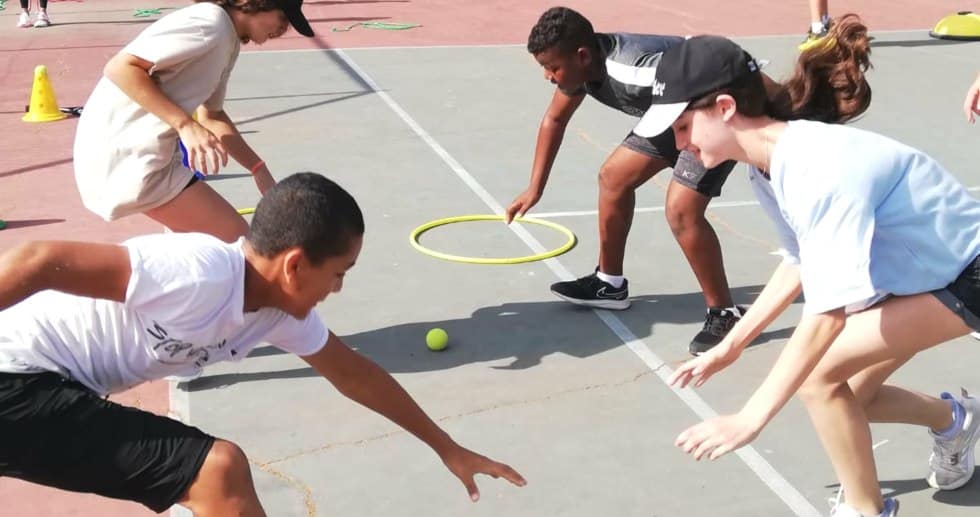
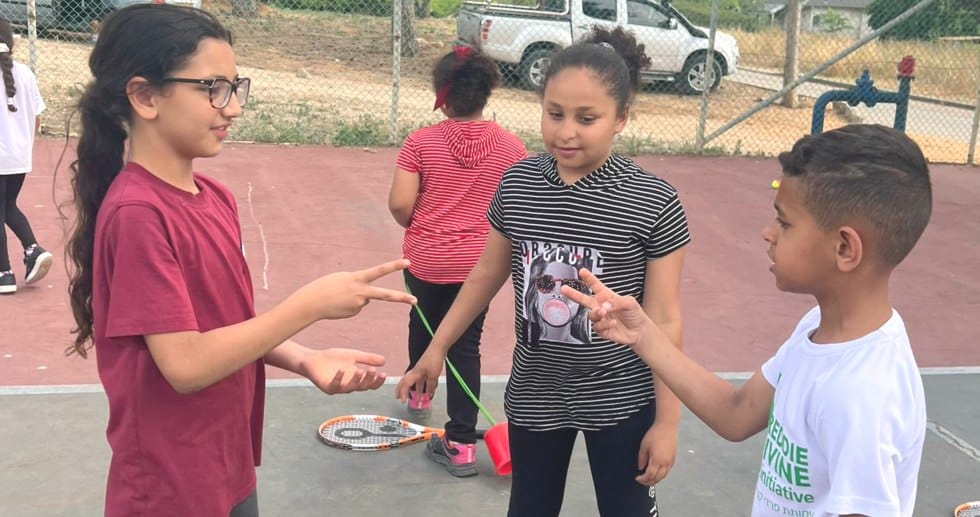
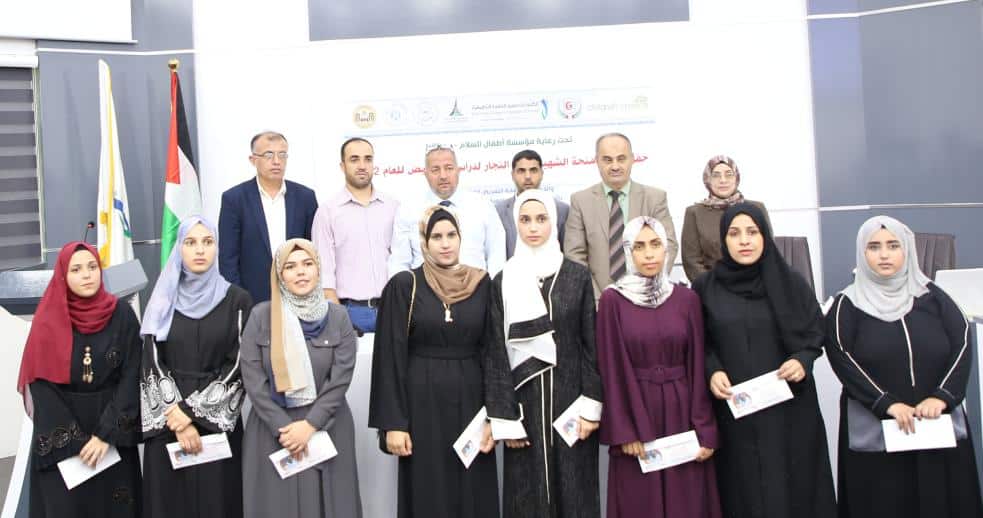
PALESTINIAN NURSES ASSOCIATION GAZA
Our highly regarded Partner in Gaza, the Palestinian Nurses Association has trained 14 nursing students through our Razan al Najjar Nurses Bursary.
This 2023 we plan to increase our funding for this vital program and help to train even more nurses. The Grant for the Bursary will be made available by October 2023.
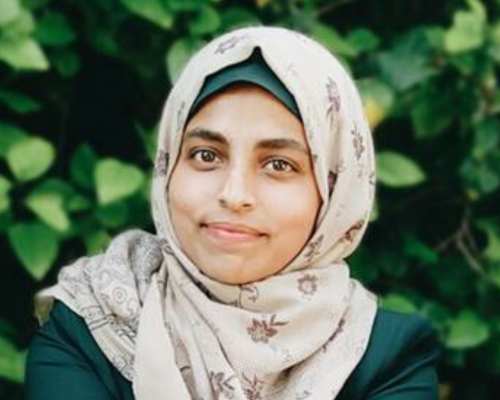
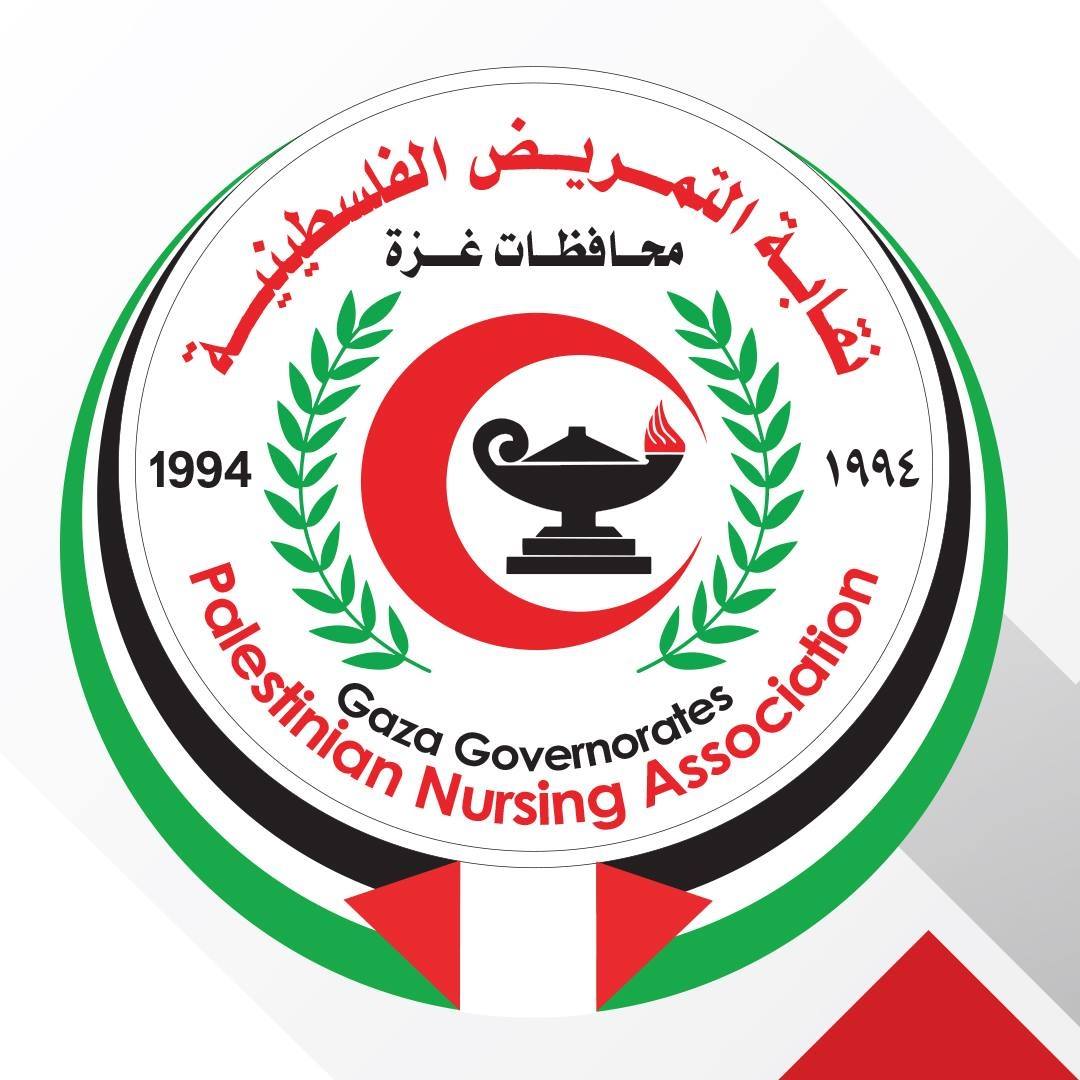
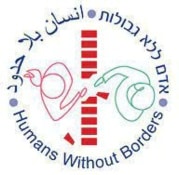
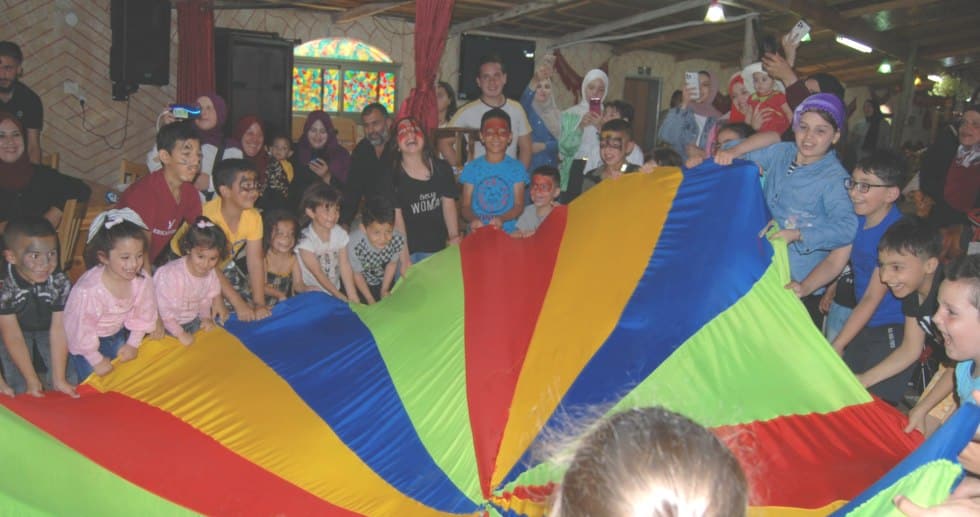
HUMANS WITHOUT BORDERS
Each year we are delighted to support our colleagues and Partners at Humans Without Borders in Israel who work with their Palestinian counterparts in the West Bank to arrange an Annual Fun Day for sick or disabled Palestinian children.
Fun Days include days out to a zoo or play centre or at the beach in Tel Aviv. Children and their families are collected in the West Bank by the HWB volunteer team and can spent time away from daily troubles. The families are joined by medics and a Palestinian cook to produce their favourite meals.
This year the Fun Day has been postponed until later on this summer.
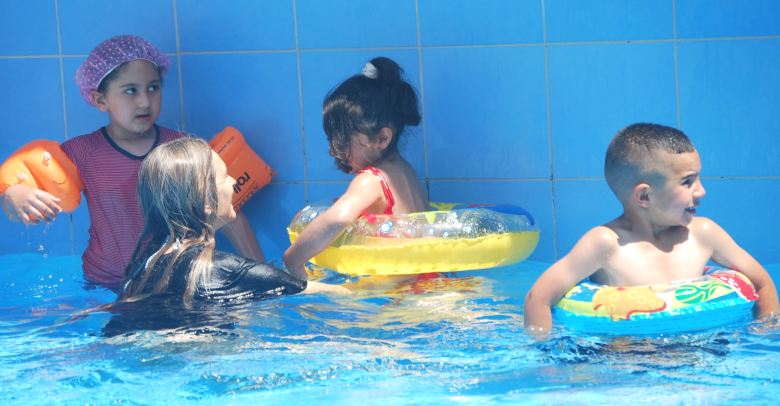
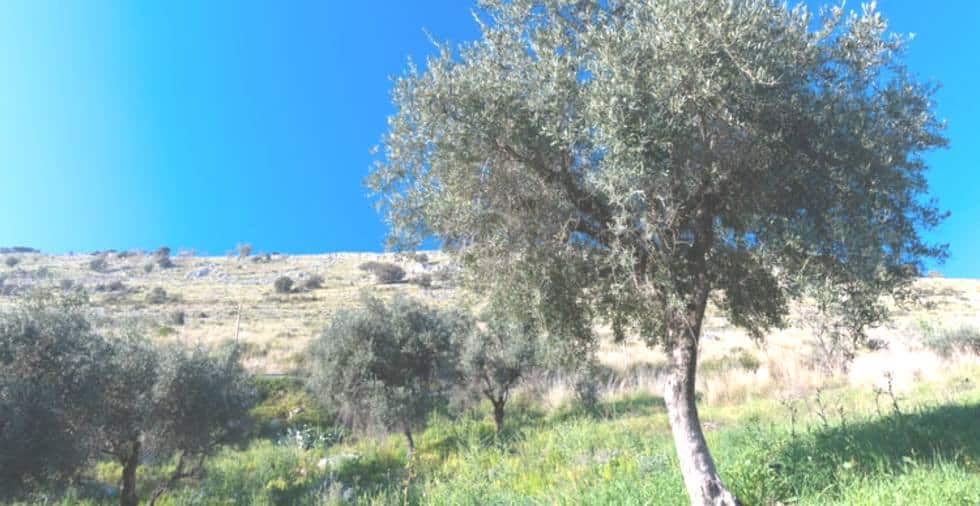
RABBIS FOR HUMAN RIGHTS
In celebration of our twentieth anniversary, Children of Peace will plant twenty olive trees in Israel and twenty olive trees in the West Bank through the support of Rabbis for Human Rights.
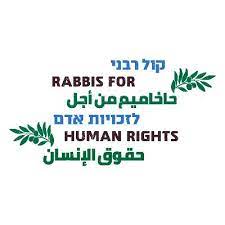
Voices from Israel
Our Israel correspondent Rolene Marks writes about the impact of continual conflict on the lives of the children of Southern Israel.
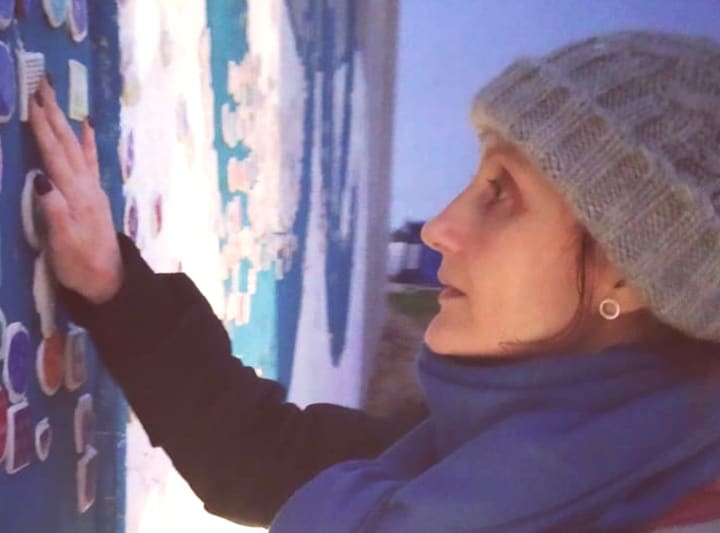
A Voice for our Children
Imagine living your life in increments lasting just several seconds. For the people of Sderot, Netivot and the millions of Israel’s citizens living in the south, several seconds mean the difference between life and death.
When the red alert siren (or in the case of Sderot, voice speaking over a PA system) a matter of seconds is all it takes to have to scramble to safety in the nearest shelter.
Sderot is the most bunkered town in the world with bomb shelters every couple of metres for the safety of its citizens. As you read this, please try to imagine what life has been like for the citizens of Sderot who do not know what it is like to live without the firing of rockets onto their town. The warning ‘Tzeva Adom’ (code red) is as part of their lives as going to school or work.
The result of rocket and mortar attacks are an occurrence that happens far too often for comfort and the result is generations of children living with severe PTSD symptoms. Wetting the bed, fear of leaving their parents’ sides, high anxiety, just some of them.
The Gaza strip is one of the most densely populated areas in the world. Gaza is controlled by the internationally recognized terror group, Hamas. Hamas are responsible for reigning in terror entities in the Gaza strip. But every now and then, they fire from within their civilian population towards Israel’s, holding both sides hostage to terror.
More often than not, rockets fired from the Gaza strip land short – injuring and killing Palestinian civilians.
In a conflict, children suffer the most.
The effects of the cycle of conflict stay with children long after the rockets, sirens and retaliatory strikes have stopped. Children are jittery, suffer anxiety and for the many who have special needs, the trauma is often a lot more intense.
Israel’s healthcare providers as well as many NGO’s like WIZO, the JNF, Keren Hayesod and many others do whatever they can to ensure that not only are children protected by having safe places to run to when the all too familiar Tzeva Adom sounds; but also the psychological care that they need.
All children deserve a bright future. They deserve to dream big and aim high. They are not the useful fodder for headlines. They need to be protected and we need to do better by them. They deserve nothing less.
THE MIDDLE EAST CHILDREN’S INSTITUTE JOINS US
Children of Peace is delighted to welcome the Middle East Children’s Institute as affiliates within our Coalition of Peace, now the largest peace network across the MENA.
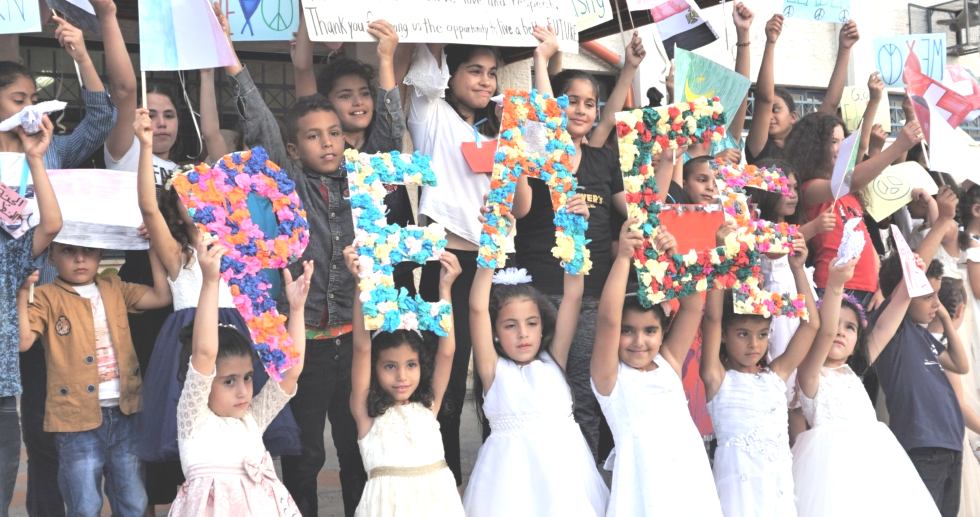
MECI is a tax-exempt public charity, established in 2005 in the USA. The mission is to address the educational and psychosocial health, and other basic humanitarian needs of children and women in impoverished and war-torn areas of the Middle East. MECI seeks to move past conflict and advance the prospects of peace by empowering youth and women to become agents of change and leaders in their communities.
MECI currently operates in five schools in the West Bank though its locally registered branch: MECI Palestine. MECI’s Child-Centered Afterschool Program has touched the lives of over 10,000 at risk children, their families, and the larger community. It is a holistic program focusing not only on education but also on health, mental wellness, and life skills (including conflict resolution skills), providing a safe environment for children to express themselves, heal and grow.
MECI grassroot approach, enables it to work closely with families, local schools and government, ensuring that the programs are tailored to the needs of the community.
We are fully committed to the protection and well-being of children, and we maintain a strict child protection policy that guides all our activities.
We believe that our mission aligns closely with the principles of the Coalition of Peace, and we are eager to join and support your efforts to promote peace. We look forward to working with you to advance our shared goals.

OUR COALITION OF PEACE
… is a unique peace network with affiliates on every continent, and especially in Gaza, Israel, Jordan, the West Bank, Turkey, Egypt and Morocco.

CHILDREN OF PEACE SCHOOL
Children of Peace is delighted to be supporting a new school in Rafah, Gaza.

We are honoured that the School will be called… The Children of Peace School.
It is located in the city of Rafah, in the southern Gaza Strip. The license has been approved by the Ministry of Education.
The School’s Founder Ola Shalayel tells us about the importance of this project…
At the new Children of Peace school in Rafah, Gaza we recognise the value of pre-school kindergarten education helping Gazan children to transition from home to school. Kindergartens in most countries of the world are part of the pre-school system for early childhood education.
The term kindergarten is used around the world to describe the many types of institutions established for children between two and six years old.
Children go to kindergarten to learn to communicate, interact and play with others. The kindergarten teacher provides all the different tools and activities that help children learn. Be it the language of reading, vocabulary and other sciences such as mathematics, music, fine arts and social behaviours.
Above all, many Gazan children are exposed to the consequences of conflict and violence, making them especially anxious and stressed. At this school they will have the chance to be just like other children around the world, free to learn and interact without fear.
Letter from Dalia
Our Gaza correspondent and our Regional Liaison Director Dalia al-Najjar talks about the impact of conflict on the mental health of children in Gaza.
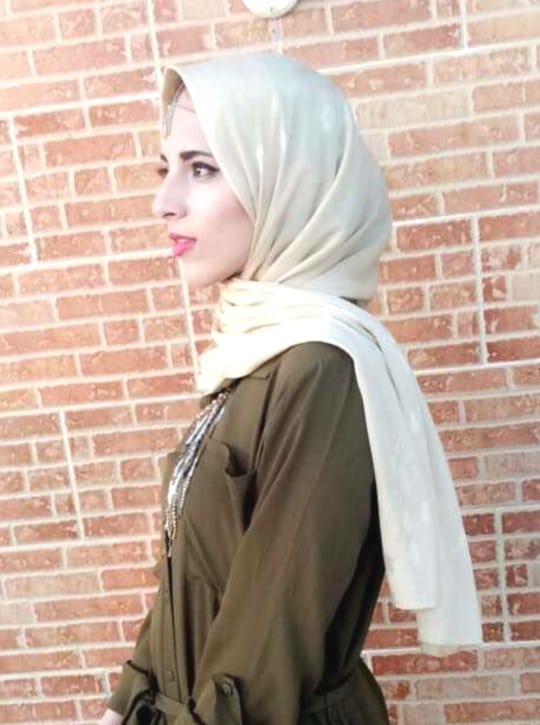
The sound of explosions reverberates through their homes, shattering their sense of safety and security. They witness the destruction of their neighbourhoods, the loss of loved ones, and the pain of their friends. How can a child thrive and grow when they live in a constant state of terror? The psychological stress they endure hampers their ability to focus, learn, and dream of a better future.
To make matters worse, basic necessities like clean water, food, and healthcare are in short supply. Poverty and limited access to essential services only deepen their suffering. They are robbed of a normal childhood, burdened by the weight of uncertainty and instability. Their innocent hearts carry heavy loads of helplessness and despair.
The grief they experience is unimaginable. The loss of family members and the displacement caused by conflict haunt them, leaving deep wounds that refuse to heal. They carry the weight of their trauma, struggling to find solace or support in an environment where resources for mental health are scarce.
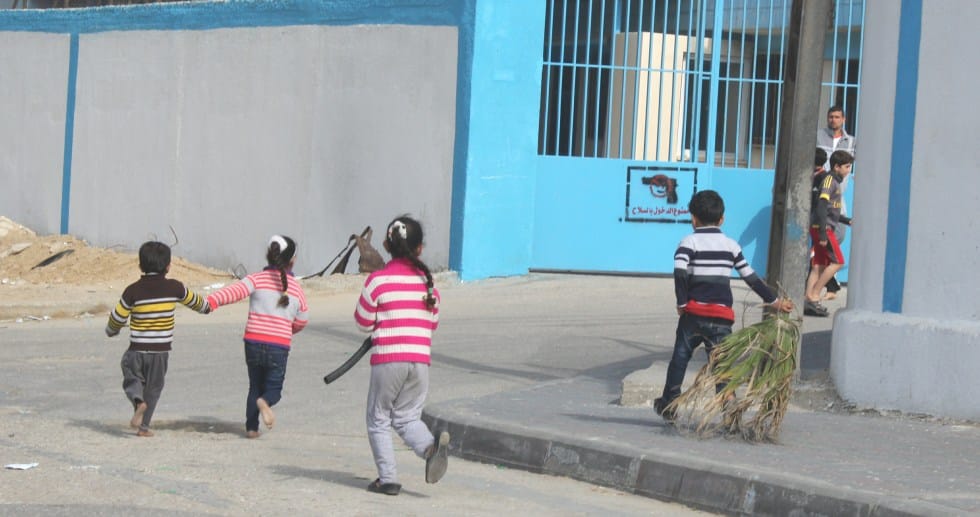
The children of Gaza desperately need our support and compassion in the face of conflict-induced trauma. With more than half of the population being children, the impact is staggering. To make a difference, we can start by raising awareness about their struggles and dispelling misconceptions.
Donating to reputable organizations that provide mental health support and educational programs is another way to contribute. It is essential to advocate for policy changes that prioritize the well-being of these children and push for increased funding for mental health initiatives.
By fostering cultural exchange and solidarity, we can connect children from different parts of the world and remind them that they are not alone. Together, through small but meaningful actions, we can offer a lifeline of hope and healing to the children of Gaza, empowering them to rebuild their lives and restore their dreams.
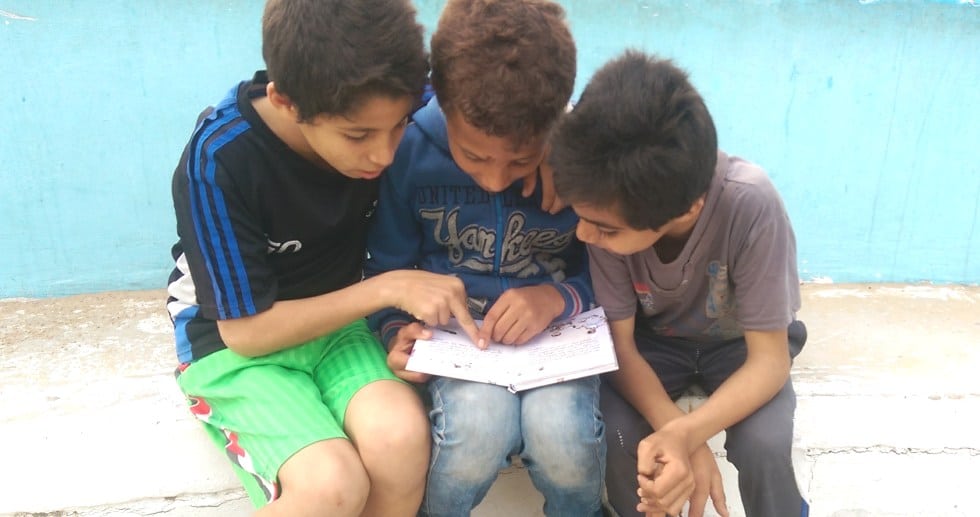
Rebuilding Lives
The violence against Israelis and Palestinians hurts children in both communities – with an increase in post-traumatic stress, morbidity, nightmares. Children of Peace carries out urgent work with our partners – protecting and supporting children. Please support our work and help the #childrenofconflict.
Photo credit: Lyle Hastie - Unsplash
FOOTNOTES
In her latest news update, Professor Sarah Brown reviews key events in the region.
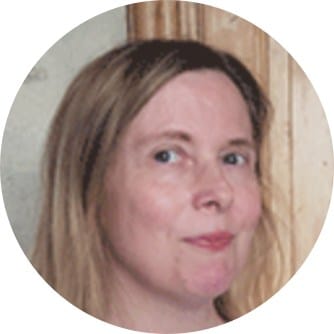
Talks took place in Beijing on Wednesday 14 June between Palestinian President Mahmoud Abbas and President Xi Jinping. China’s interest in the region can be seen as a challenge to the role of the US on the international stage, and bore fruit in March when an agreement between Saudi Arabia and Iran was brokered.
Xi confirmed his support for Palestinians, and his desire for Palestine to become a full member state of the UN. He also called for a strategic partnership of mutual support between China and Palestine including negotiations over a free trade agreement.
Xi offered his own sense of what a solution would look like – an independent Palestinian state following the 1967 borders and with East Jerusalem as its capital. He emphasised the need for aid and support from the international community, and stated China’s willingness to help achieve a reconciliation.
An official Chinese source reported on Abbas’ response:
“Abbas reaffirmed Palestine’s steadfast commitment to the one-China principle and firm support for China’s just position on issues related to Taiwan, Hong Kong and Xinjiang.”
Xinjiang is the home of the Chinese Muslim Uyghur minority whose treatment has led to grave concerns about human rights abuses.
You can read more.

Proposed changes to the judiciary have prompted concerns both at home and abroad, with many asserting that they contradict democratic norms. Tensions have come to a head in the Knesset recently due to conflicts over the election of two political representatives to sit on Israel’s judicial selection committee. Although the convention has been for both the government and the opposition to nominate appointees, government hardliners want control over both posts.
A recent report in the Guardian draws attention to the concerning implications of one aspect of the controversial judicial overhaul package which has received little attention. This change would give religious courts far more power…
“The rabbinic courts follow halacha, Jewish law, and do not allow women to be judges. According to Dr Susan Weiss of the Centre for Women’s Justice, which provides legal aid and advocacy for women in Israel, rules allowing female witnesses are inconsistently applied, and rabbinical judges have barred female witnesses from testifying, even in domestic abuse cases.”
Although participants have to agree to have their case arbitrated in a religious rather than a secular court it is feared that women in some more conservative, ultra-Orthodox communities will come under pressure to do so.
You can read more.
First Guardian article.
Second Guardian article.
Currently, almost all children of asylum seekers in Tel Aviv attend segregated schools. However, recently a campaign has been launched to integrate these children into mainstream schools. It has now been announced that 96 children will take part in a pilot scheme to trial an integrated approach. This was approved by the Israeli Education Ministry and the Tel Aviv Municipality following a petition from parents. However, some feel this move doesn’t go far enough.
Only the youngest children will be included in the pilot, and many think it should immediately be extended to older pupils. Those opposed to the integration plan argue that it will mean children travelling longer distances to attend school.
One school principal, as reported by i24 news, has offered a pedagogic justification for a separate system…
“The kids here don’t know how to read, don’t know how to write, don’t recognize letters when they start the first grade,” said Eshel Hershkovitz, the principal of Hayarden. “If they’re the same level, you can work with them. If they are mixing, there is always competition and always a disappointment for some of the kids.”
But Tal Hasin and Haran Reichman, representing the petitioners, insist that separation is discriminatory…
“The intention to create a differentiated curriculum for students in the separate schools is also particularly troubling, one that will not allow them to develop an attachment to Israel and will qualify them to leave the country. It sounds like preparations for deportation.”
You can read more.

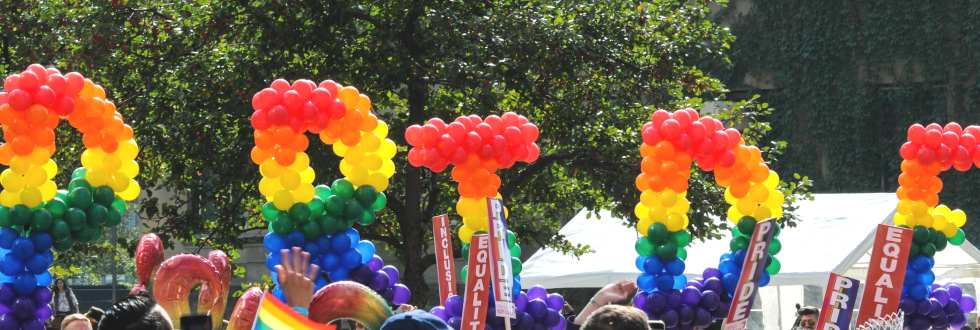
It went peacefully, but with tight security in place – including around 2000 police. This reflects the violence which has marred events in the past, in particular the murder of Shira Banki in 2016 by an ultra-Orthodox extremist.
Although the parade went ahead as planned, there are conspicuous tensions between Israel’s current government and the LGBTQ community in Israel, and placards protesting the government’s attacks on the High Court and judiciary were in evidence. The national security minister, Ben Gvir, has frequently protested against the Jerusalem parade in the past – and this year was greeted by jeers from the crowd.
Protests against this year’s parade were led by hard-line Rabbis such as Bentzi Gopstein. Incongruously, their objections were mirrored by Hamas, who called for Palestinians to confront the participants, declaring…
“We, the Islamic Resistance Movement Hamas, strongly condemn the fascist occupation authorities for allowing the organization of a provocative march for ‘perverts,’ which is scheduled to roam the streets of occupied Jerusalem on Thursday.”
The relationship between gay Palestinians – whether living inside or outside Israel – and Israeli Pride events is a complex one. The parade included placards calling on Israel to ‘stop pinkwashing’ and protesting against the occupation. It has been alleged that gay Palestinians seeking sanctuary in exile sometimes come under pressure to collaborate with Israeli security forces.
You can read more.
Olive Tree, Bruce Kee, Unsplash.
China flag came from Wikipedia, Creative Commons. Palestinian flag from Engin Akyurt, Unsplash
Jerusalem dome, Raimond Klavins, Unsplash.
Classroom, Kenny Elaisin, Unsplash.
Pride image, Toni Reed, Unsplash.
Other images were supplied by the subjects.





